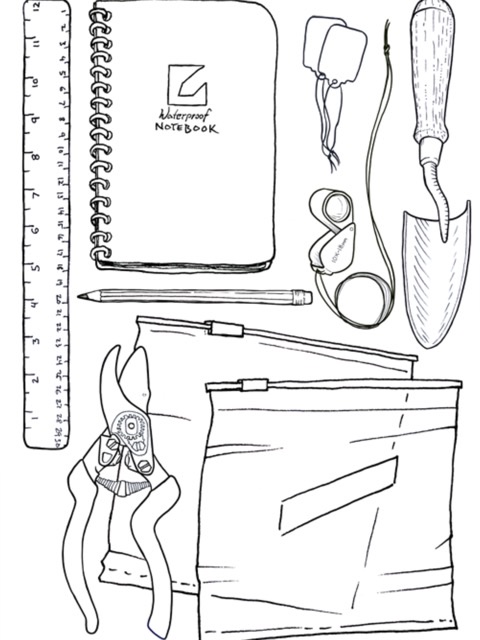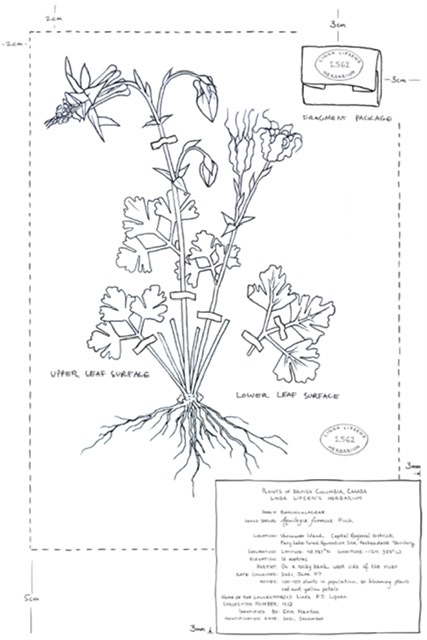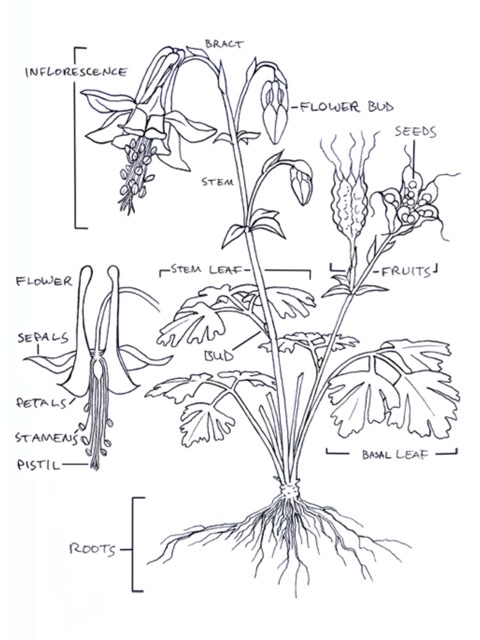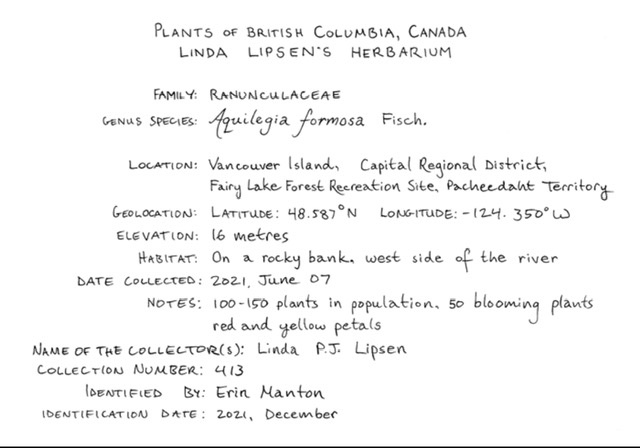Book Review: Linda P. J. Lipsen and Derek Tan’s Pressed Plants: Making a Herbarium, published in February 2023 by Royal BC Museum, Victoria, British Columbia
One of the hobbies I enjoyed as a girl was pressing wildflowers. My friend Rosemary lived in a house that backed on to some wild land near Cyncoed Village. We would walk the lanes and trails collecting wildflowers: lesser celandine and meadow buttercup (we could tell the difference), willowherb, red campion, and red clover. She knew all the names; I marvelled at her knowledge of nature and her collection of pressed wildflowers.
Now, thanks to Linda P. J. Lipsen and Derek Tan’s marvellous and compact compendium, Pressed Plants: Making a Herbarium, I know how important is pressing our native flora wherever we live, for knowing the natural history of this part of our planet. Botanists cannot do all the work themselves. They need help. “Plant biodiversity research needs you,” says Linda. “Botanists cannot properly document plant biodiversity on their own, and it takes motivated and curiously minded people like you to help build comprehensive research collections.”
For the last sixteen years, Linda has been the collections curator of the herbarium at the Beaty Biodiversity Museum, at 2212 Main Mall, in the heart of the UBC Campus. And so, of course, her book is chockful of advice and botanical data, making it a fabulous addition to any home library about plants.
I say Linda’s book is compact, because it is slim and small at 92 pages, 8 inches by 5½ inches. I say it is a compendium because the information is detailed: it lists the tools and supplies, the preparation, the process, and the preservation, as well as the purpose of pressing plants.
Linda covers the concerns of responsible and ethical collecting, including reminding us of the practices developed the Indigenous Peoples of this land: “Harvest in a way that minimizes harm.”
She covers where to collect plants and what parts of a plant to collect; she covers how to deal with very small plants, very fat roots, and very wet aquatic plants that only live in water.
She covers how to complete a specimen label with information that is useful for posterity.
She covers pressing supplies, such as newsprint, cardboard, blotter paper, and more. By the way, where can we buy blank newsprint? And she explains that she’s a cardboard pressing snob. Is there really such a person? Cardboard is what “keeps your plants flat while drying so don’t skimp here,” she emphasizes. And flimsy, bent, or soft cardboard won’t keep your plants flat.
Linda’s colleague Derek Tan is the illustrator, photographer, multimedia designer, and the digital producer at the Beaty Biodiversity Museum. He has created umpteen illustrations for this publication, on how and what to use for collecting. Here’s another of his illustrations, showing how a specimen can look when it’s laid out ready for pressing. 
Once pressed, the collection must be preserved and organized usefully. A collection can “last hundreds of years. So take good care of your specimens.” Indeed, the collection Linda curates is over a hundred years old.

And if this process is too daunting, you will be happy to know that you can donate your collection to an institution such as a university or museum and they will be glad of your contribution.
The book launch for Linda Lipsen and Derek Tan’s book, Pressed Plants: Making a Herbarium,will be held on Thursday, February 16, from 5:00 p.m. on. It includes a tour of the herbarium. Admission is by donation.
Read more at this link and register by February 9. https://beatymuseum.ubc.ca/2022/12/22/pressed-plants-making-a-herbarium-book-launch-and-signing/
I hope to see you there.
Nina Shoroplova is a naturalist with Nature Vancouver, a Vancouver Master Gardener, and the author of Legacy of Trees: Purposeful Wandering in Vancouver’s Stanley Park, a finalist in the 2020 Lieutenant Governor of British Columbia’s Historical Writing Awards.